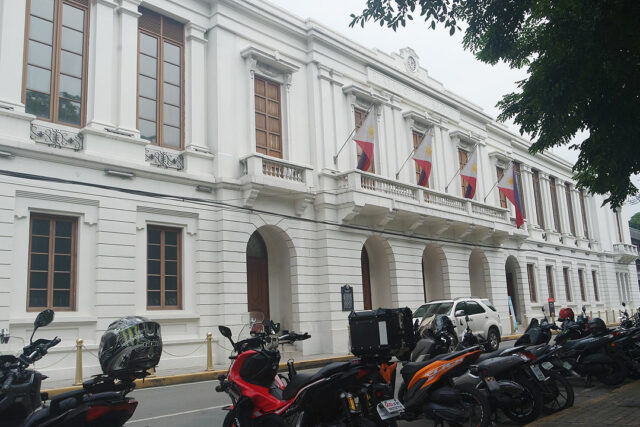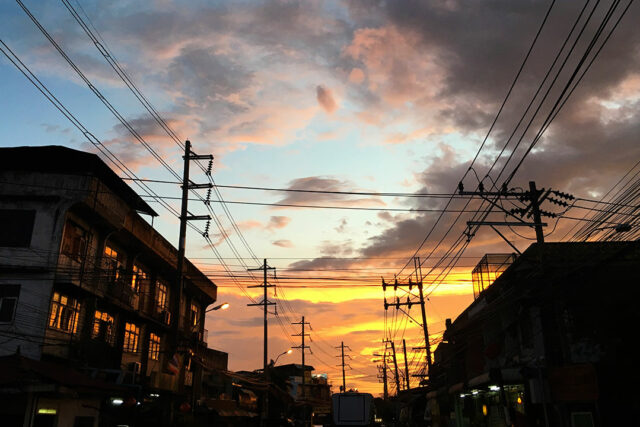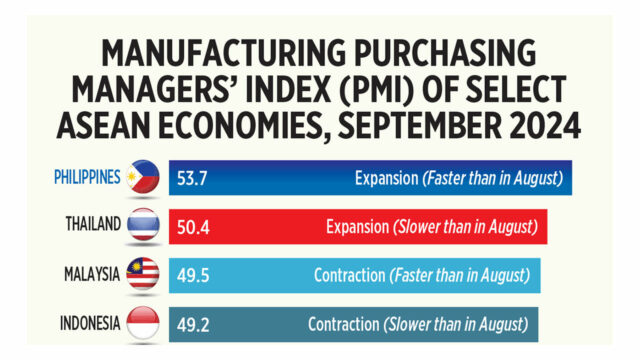By Revin Mikhael D. Ochave, Reporter
THE Philippine Stock Exchange (PSE) is proposing to expand the blackout rule to include issuers as part of its amendments to listing, disclosure, and trading regulations.
“It is proposed that the coverage of the blackout rule be expanded to include the issuer itself so that it cannot sell or conduct a buy-back of its shares during the blackout period,” the PSE said in a consultation paper dated Sept. 30 posted on its website.
“The issuer itself may also be in possession of material nonpublic information when it deals in its own shares,” it added.
Currently, the blackout rule only applies to directors and principal officers of an issuer, excluding the issuer.
The blackout rule is where a company’s directors and principal officers who have obtained material nonpublic information are prevented from trading their company’s shares within a prescribed period.
Material nonpublic information refers to any information, which has not been publicly disclosed and would likely affect the market price of the security after being disseminated. It is also any information deemed important in determining a person’s decision to buy, sell, or hold a security.
“The above proposed amendments are benchmarked against the rules of the Singapore Exchange and Bursa Malaysia,” the PSE said.
The PSE said the proposed amendment ensures a level playing field for all investors, by preventing “information asymmetry” and ensuring that no party can take advantage of material nonpublic information.
Aside from an expanded coverage, the PSE also proposed that the blackout period for earnings results should be 30 calendar days before the earnings pre-announcement or submission of the company’s annual and quarterly reports, whichever is earlier, and up to two full trading days after the posting of the disclosure.
“We always welcome the PSE’s efforts to strengthen its regulatory framework, and in this instance, we are most pleased with the amendments to the blackout rule. Too often, we see huge price movements in share prices of stocks ahead of major disclosures,” AP Securities, Inc. Research Head Alfred Benjamin R. Garcia said in a Viber message after being sought for analyst comment.
“Hopefully, the exchange can also enhance its monitoring of trading participants who have a history of trading ahead of these disclosures,“ he added.
The PSE also proposed that the penalty for trading of unlisted shares be capped at P50 million.
The current penalty for trading of unlisted shares is a fine equivalent to 15% of the market value of the shares at the time of lodgment and a daily fine of P2,000 for each day of continuing violation until addressed.
“If the violation occurred 15 or 16 years ago, the penalty computed based on such formula could reach up to hundreds of millions of pesos,” the PSE said.
The PSE also proposed an amendment to the lock-up rule in relation to related party transactions where the rights or public offering requirement has been waived.
It recommended that shares must be held under escrow via an escrow agent from the time of issuance until 180 days after listing.
“The lock-up requirement aims to prevent related party subscribers from selling the shares immediately or shortly after issuance, which may result in undue advantage over minority stockholders whose shareholdings were diluted because of the related party’s subscription,” the PSE said.
The PSE also proposed to indicate in the rules that actual listing of shares offered under a stock option plan or stock purchase plan shall not take place until issuance and full payment of the shares and compliance with post-approval requirements.
It also recommended that the payment of the listing should be delayed until the shares are actually availed of, as the exercise period for stock option plans and stock purchase plans can be several years from grant.
The PSE also proposed that the listing fee should be computed based on the actual transaction value, and a P50,000 processing fee should be paid upon filing of the listing application.
Meanwhile, the market operator also proposed to remove the one-month liquidation period for error transactions.
“The shares in the error account become the proprietary shares of the trading participant; hence, the trading participant should be able to decide whether, and when, it wants to liquidate the position in its error account,” the PSE said.
“Furthermore, the trading participant already absorbs the consequences of the error transaction by paying for the overbought shares. Requiring the trading participant to dispose of said shares within one month, even if it may incur a loss, is tantamount to penalizing the trading participant twice for the error transaction,” it added.
Interested parties have until Oct. 11 to submit their comments on the PSE’s proposed amendments.
“These are more on administrative issues. Hence, there is not so much impact on market volumes,” COL Financial Group, Inc. Chief Equity Strategist April Lynn Lee-Tan said in a Viber message.
“These would help better protect the interest of the investment public, by creating a more level playing field, as well as greater transparency, in line with global best practices,” Rizal Commercial Banking Corp. Chief Economist Michael L. Ricafort said in a Viber message.





![PSE-bell [BW file photo]](https://www.bworldonline.com/wp-content/uploads/2024/04/PSE-bell-BW-file-photo-640x427.jpeg)







